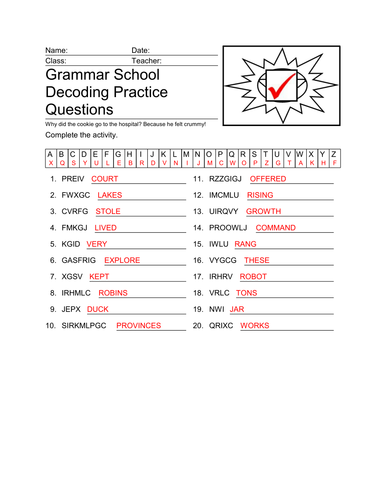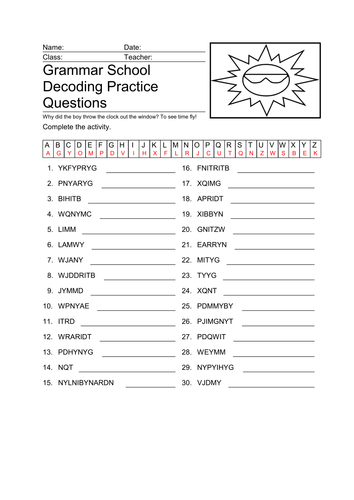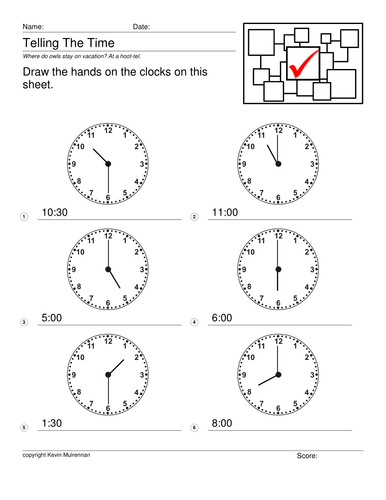406Uploads
122k+Views
41k+Downloads
Mathematics

Year 3 Literacy and Maths Planning
Gathered my lessons for year 3 together.
Mainly Literacy and Maths plus bits and bobs.
In the zip you find the lot. Included some examples in general upload.
Sample planning :
Introduction
Explain will be looking at different ways of writing poetry using special words and shapes as stimulus. ‘calligram’ means beautiful writing.
Show examples.
S&L
Children discuss with response partner why they think words are presented in these ways. Teacher draw children back together.
After discussion, ask children to choose most effective calligram, justifying choice.
Draw out understanding that the meaning of words inspires the shapes in a calligram.
Teacher demonstrate use of ICT programs to produce calligrams and own drawing as alternative.
Draw up a list of suitable words for choices.
Word/Sentence Activities
Use IWB store range of suitable words for calligrams. Can children classify word types: nouns, adjectives, adverbs etc.
YEAR 3 LITERACY LESSON PLAN 16th Monday
Whole Class Shared Learning
Before reading; ask the children what they think ‘Autumn’ poem will look like.
Show poem. Ask them to decide where you should begin reading and then read the poem.
Read two more examples of shape poems.
Add appropriate actions. Class repeat.
S&L
Encourage the children to say how similar and different the three poems are. Invite them to say which poem is most effective visually. Which poem do they prefer? Discuss why the poets have chosen these shapes, and how the shape affects the content of the poems.
Practice with RP saying preferred poem aloud.
Word/Sentence Activities
Rehearse spellings for Word Wall words. Challenge children to find other words with same phonemes

Year 3 Planning Spring Literacy Numeracy Ref A
Important! If you’d like to buy the whole year’s planning (Autumn, Spring and Summer) you’d be better off buying my bundle.
This is planning for year 3 for a Spring term.
Plenty of great material here that you can adapt and cut and paste into your own school’s model.
After decades of teaching I’m retired from teaching now. I’d like to help the younger generation so I’m putting my plans online. I hope your Sundays will be made a little easier by cutting and pasting allowing you more free time.
You get:
Literacy planning e.g. Myths and Legends, Poetry (language play) 9 weeks worth
Numeracy planning 11 weeks worth
Creative curriculum (a bit)
RE (a bit - I taught mainly in Catholic schools so feel free to ditch this if you please)
Science (a bit)
Nocturnal Animals (a bit)
You get 75 mb of material, which is good value in my opinion.
Remember, all schools are different so you will have to adapt my materials to suit your school. It’s not a silver bullet, but should save you lots of time as you can cut and paste.
Great for N.Q.T.'s and experienced alike.

Year 5 Mathematics Numeracy Planning Spring cc
Save your Sundays!
12 weeks work of Maths planning
plus worksheets on Table Drills to sharpen up their skills.
Topics covered include:
Number facts
Problem solving
factors
Shapes
Handling Data and numbers
fractions
Loads of resources and worksheets
Cut and paste into your template and enjoy a cuppa in front of the telly Sunday nights.

Teaching Resources 50000 Questions Fractions Maths KS2
I have designed 100 worksheets of 12 pages each (50000 questions in total) on fractions. They are suitable for years 5 and 6 i.e. 10 and 11 year olds. They could be used in the first few years of secondary school too, or for adults who need help with Maths. There is a wide range of difficulty. You can dip into the worksheets and pick the ones you like. The further you go into a worksheet the more difficult it is as I have used bigger denominators, mixed and whole numbers, a wider range of numbers etc. There are questions on: Comparing fractions Division with Whole Numbers fractions addition fractions and Decimals fractions multiplication fractions subtraction Mixed operations with fractions Multiplication with whole numbers Simplifying fractions You can use your professional judgement to choose the appropriate sheet. You can pick and mix, leave questions out etc. it’s your choice!
Bundle

Maths KS2 Bundle Half a Million Fractions Questions Patterns Simplifying Fractions
Maths Bundle of worksheets.
Includes:
Half a million (500000) Fraction Questions Worksheets
(Half a million (500000) Fraction Questions on 100 worksheets.
Answer sheets provided of course.
Great for revision or give to the brighter pupils to keep them active.)
Maths Patterns 100,000 Questions Numeracy
Simplifying Fractions 100 Worksheets with Answers Maths Mathematics KS2

Year 6 Maths Numeracy Planning 890 Files 400mb Planning
I’ve put together my planning from a school I taught in.
You get a massive 890 files and over 400mb of planning.
Spread over a number of years, you may wish to form for your own use your own lessons by combining elements of various lessons.
The zip contains the lot. I’ve included a few in the general upload so you can peruse.

Year 5 Maths Fraction word Problems 2 Differentiated sheets Multiplication Methods
Week’s planning.
sample :
L.O. To apply understanding of multiplication facts.
Knowledge Harvest: What do chn know about multiplication and place value? I.e. when multiplying using the formal method, numbers need to be set out accurately, what methods do the children know? i.e. partitioning and formal written method.
Have 5x2x6 on the board. What is the answer? How do I work this out?
Once chn have got the answer, discuss whether it matters if the numbers are in any order.
Resources:
Dice: 1 between 2
Vocab:
Multiplication, number facts, digit, numbers, single digit,
LO: To revise calculation of multiples of 10.
Have some numbers on the board. Can chn partition them? Discuss that in 4567, the “4” has a value of “4000”. Link this to the Place Value grid (ThHTU). Remind chn that the units column is now called the “ones” column.
Have a 356 x 10 on the board. How can we work this out? Discuss different methods that the chn may come up with.
Do chn (LA) realise that you can move the digits, or will they try to use the formal method?
Clear up any misconceptions that we just add a zero or move the decimal point.
Adult to remind chn of the clue. Look at the amount of zeroes to see how many places the numbers need to be moved.

Year 5 Maths Investigations Nice Short Pithy Exercises
A series of short but interesting Maths investigations.
Nice worksheets for year 5 pupils.
Bits on tally charts and graphs.
Nice powerpoint on reading scales.
Bundle

Algebra and Pythagoras worksheets KS2 Fractions
A bundle.
1000 questions Equations Single Variable Mathematics KS2 Algebra
100 Questions on Pythagoras Answers Provided
Half a million (500000) Fractions Questions Worksheets KS2 Mathematics Maths

Back to School Year 6 Summer Term Maths Literacy
Nice compilation to get you through the tricky Summer term.
Compilation from several schools I taught at. Plenty of material.
sample:
TTYP what is an autobiography?
Come back together and discuss.
Repeat for biography.
Which would be written in first person and which would be written in third?
Who is the audience and what is the purpose of both text types?
Activity One
Show ‘fact’ and ‘opinion’ on the board. What do these mean? Talk about how autobiographies can contain both because the subject is writing their own life story.
Activity One
Give groups a copy of the John Lennon biography section and the section of ‘Boy’ by Roald Dahl (both from essential non-fiction anthology).
Each group to divide a large piece of paper in half and create a features list for both text types. Read the 2008 Long writing task and discuss how we would tackle this.
Your task is to write a biography of Pip’s life,
Including information about his inventions.
Success Criteria:
I have revised the features of biography and autobiography.
I have started to think about how I might tackle tomorrow’s writing task.
Bundle

Bundle Telling The Time and Time passages
Bundle
Worksheets on telling the time and also time passages.
Please see my shop for individual details.

Year 5 Year's Planning Maths English Humanities subjects Especially R.E.
A big value set of planning.
For year 5.
Loads of material here.
Planning, worksheets, powerpoints etc
Give your planning a real boost. Excellent for filling in gaps in the curriculum and making your Sundays easier.
Concentrates on Maths and English, but plenty of other subjects, especially R.E. in there.
The zip contains loads of files. I’ve included a FEW in the general upload to give you and idea of the planning.

11+ Verbal Reasoning Decoding Vol 1 Maths KS2
I have designed 100 worksheets on decoding numbers for the 11+ non verbal reasoning questions. There are 100 worksheets provided on a cd. Decoding is an important aspect of the 11+ exams. Ideal for parents, pupils and tutors. Answer sheets provided. The Decoding worksheet helps to reinforce spelling and problem solving skills for students. The letters of each word are replaced with other letters or numbers based on a pattern. Students must translate the words and spell them correctly. You can see an answer sheet in my picture with the answers in red.

Back to School Autumn Term Year 5 Full Planning Worksheets
Some terrific planning. The last I did before retirement.
It covers the whole of the Autumn term for year 5.
It concentrates on Maths and English. But loads extra on the arts and humanities and pe.
Sample planning
To apply understanding of the structure of a Greek Myth to identify separate parts of a myth
I can order key events in a quest
I can identify how the events in a quest are separated by the writer, referring to the structure/content of the text
I can identify key language features of Greek Myth Texts
Starter
Read “The 12 Labours of Heracles” to the children (58-66, The Orchard Book of Greek Myths).
Recap features of quest – ask chn to identify these
• A quest is a journey towards a goal, which usually requires great effort by the hero/heroine.
• They need to overcome many obstacles, and it usually involves a lot of travel.
• The hero normally tries to obtain something or someone through the quest, and then take this home. The object can be something new (golden fleece), something to fulfill a lack in their life, or to return something that was stolen from the hero or from someone with the power to send them on the quest.
• If someone dispatches the hero on a quest, the reason may be false -Hero sent on a difficult quest in hope that they die, or in order to remove them from the scene for a time.
• Tale usually ends with the dispatcher being unmasked and punished.
• There may be a twist at the end of the tale, to punish any misdeeds of the hero/heroine, or because one of the Gods is displeased by the successful conclusion of the quest.
MAIN ACTIVITY (Resources; boxed table)
Split chn into groups and give them a Greek Myth text. Ask chn to box up text: Chn can draw/write about important places and events on the quest, and should quote words that show the passing of time. CT to model boxing up method for 1st event in “Heracles” text and identify how scene was set, by the writer.
This activity requires children to identify details for the following sections, for EACH event on the quest:
EVENT 1
• Setting
• Obstacle (Elements of danger/safety at setting/ on the journey)
• Any words used to show time has passed
• Overcoming obstacle

Roman Numerals 100 Worksheets with Answers Maths Classical Civilisation
I’ve designed 100 sheets where pupils have to put the Arabic numeral to the Roman one.
All answers provided.
At least 20 questions per sheet. Later ones have 100. Lots of differentiation so the sheets start easy and get hard.

11+ Verbal Reasoning Decoding Vol 2 Maths KS2
This is volume 2.
I have designed 100 worksheets on decoding numbers for the 11+ non verbal reasoning questions. There are 100 worksheets provided on a cd. Decoding is an important aspect of the 11+ exams. Ideal for parents, pupils and tutors. Answer sheets provided. The Decoding worksheet helps to reinforce spelling and problem solving skills for students. The letters of each word are replaced with other letters or numbers based on a pattern. Students must translate the words and spell them correctly. You can see an answer sheet in my picture with the answers in red.

50000 Fractions Questions Worksheets KS2 Mathematics Maths
50000 Fraction Questions on 100 worksheets.
50000 questions on fractions.
Great for:
teachers
parents
tutors
supply teachers
All answers provided.
Loads of different tasks involving fractions:
e.g. adding
taking away
multiplication
simplifying etc
100 worksheets with 500 questions each.

Maths Puzzles Across Down Addition and Subtraction 100 Puzzles Plus Answers
100 puzzles plus answers.
Great for reinforcing maths.
Across-Downs is a fun activity that reinforces addition and subtraction skills.
The object of the exercise set is to find the answer for each row and column, then use those answers to calculate the final answer in the lower right-hand corner of the puzzle.
This set tests addition and subtraction.

Telling The Time 96 Worksheets with Answers Maths Differentiated Clocks KS1 KS2
98 worksheets plus answers on telling the time.
Pupils have to draw the time on the clock faces.
Plenty of variety on the sheets. e.g. time on the hour, half hour, quarter hour, plus some five minute ones.

Simplifying Fractions 100 Worksheets with Answers Maths Mathematics KS2
100 worksheets on simplifying fractions.
Answer sheets provided.
A good time filler or homework.




















